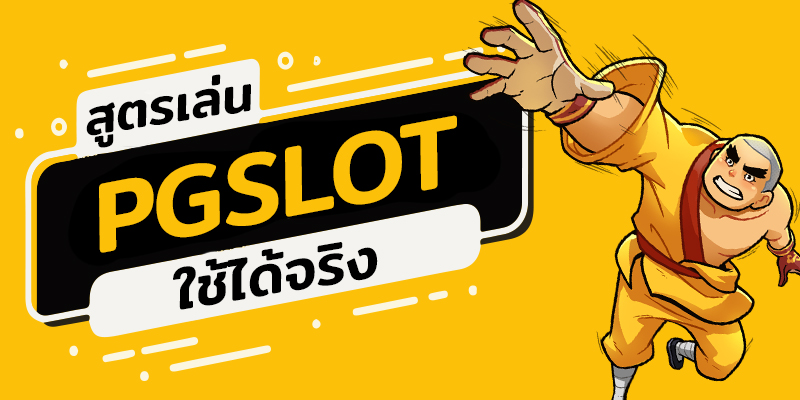Find out if Plavix is considered a controlled substance and what regulations surround its use. Learn more about Plavix and its classification as a prescription medication.
Is Plavix a Controlled Substance?
Plavix, also known as clopidogrel, is a medication that is commonly prescribed to prevent blood clots in individuals who have recently experienced a heart attack, stroke, or certain heart conditions. It is often used in combination with other medications to reduce the risk of further cardiovascular events. However, many people wonder whether Plavix is classified as a controlled substance.
The answer to this question is no, Plavix is not considered a controlled substance. Controlled substances are drugs that are regulated by the government due to their potential for abuse or addiction. They are categorized into different schedules based on their medical use and potential for abuse. Plavix, on the other hand, is not associated with these risks and is widely available with a prescription.
It is important to note that although Plavix is not a controlled substance, it is still a powerful medication that should only be taken under the guidance of a healthcare professional. Like any medication, it can have side effects and interactions with other drugs. Therefore, it is crucial to discuss your medical history and any other medications you are taking with your doctor before starting Plavix.
In conclusion, Plavix is not classified as a controlled substance. However, it is a prescription medication that should be taken with caution and under the supervision of a healthcare provider. If you have any concerns or questions about Plavix or any other medication, it is always best to consult with your doctor.
Is Plavix a Controlled Substance?
Plavix is not classified as a controlled substance by the Drug Enforcement Administration (DEA) in the United States. Controlled substances are drugs that have a high potential for abuse and addiction, and therefore are subject to stricter regulations and monitoring.
Plavix, also known by its generic name clopidogrel, is a prescription medication that belongs to a class of drugs called antiplatelet agents. It is commonly used to prevent blood clots in individuals who have had a heart attack, stroke, or certain types of heart disease.
Why is Plavix not a controlled substance?
https://ezhire.co/where-to-buy-plavix-over-the-counter.html
Plavix is not considered a controlled substance because it does not have a high potential for abuse or addiction. While it is important to take Plavix as prescribed by your healthcare provider, it does not produce the same euphoric effects or dependence that are characteristic of controlled substances.
However, it is still important to take Plavix exactly as directed and not to share it with others. This medication should only be used under the supervision of a healthcare professional, as it may interact with other medications or have potential side effects.
Conclusion
In summary, Plavix is not classified as a controlled substance. It is a prescription medication used to prevent blood clots and does not have a high potential for abuse or addiction. If you have any concerns or questions about Plavix, it is best to consult with your healthcare provider.
Understanding Plavix
Plavix, also known as clopidogrel, is a medication commonly prescribed to prevent blood clots in individuals at risk of heart attacks or strokes. It belongs to a class of drugs called antiplatelet agents, which work by preventing platelets in the blood from sticking together and forming clots.
Plavix is typically prescribed to individuals who have had a recent heart attack, as well as those who have had a stent placed in their arteries to improve blood flow. It may also be prescribed to individuals with certain types of heart or blood vessel disorders.
Plavix is available in tablet form and is usually taken once daily, with or without food. It is important to take Plavix exactly as prescribed by a healthcare professional, as missing doses or stopping the medication without medical advice can increase the risk of blood clots.
How Plavix Works
Plavix works by blocking a specific receptor on platelets called P2Y12, which is responsible for triggering platelet activation and aggregation. By inhibiting this receptor, Plavix helps to prevent platelets from clumping together and forming clots.
While Plavix is effective in reducing the risk of blood clots, it is important to note that it may not be suitable for everyone. Individuals with a history of bleeding disorders, stomach ulcers, or liver disease may need to be cautious when taking Plavix.
Side Effects of Plavix
Like any medication, Plavix can cause side effects in some individuals. Common side effects may include headache, dizziness, nausea, and easy bruising or bleeding. It is important to report any unusual or severe side effects to a healthcare professional.
In rare cases, Plavix can cause more serious side effects, such as severe allergic reactions, liver problems, or low blood count. If any of these symptoms occur, immediate medical attention should be sought.
It is important to follow medical advice and regularly monitor blood tests while taking Plavix to ensure its effectiveness and safety. Healthcare professionals will determine the appropriate duration of treatment based on individual medical history and risk factors.
Legal Classification of Plavix
Plavix, also known by its generic name clopidogrel, is not classified as a controlled substance. It is a prescription medication that belongs to a class of drugs called antiplatelet agents. Antiplatelet agents are used to prevent blood clots in individuals at risk for heart attack or stroke.
While Plavix is not a controlled substance, it is still regulated by the U.S. Food and Drug Administration (FDA). This means that it can only be obtained with a valid prescription from a healthcare professional. Plavix is available in tablet form and is typically taken once daily.
It is important to note that even though Plavix is not a controlled substance, it should be used with caution and under the guidance of a healthcare provider. Like all medications, Plavix may cause side effects and can interact with other drugs. It is important to discuss any existing medical conditions or medications with your healthcare provider before starting Plavix.
If you have any questions or concerns about the legal classification of Plavix or its use, it is best to consult with a healthcare professional or pharmacist. They can provide you with the most accurate and up-to-date information based on your individual circumstances.
Controlled Substances Act
The Controlled Substances Act (CSA) is a federal law in the United States that regulates the manufacture, distribution, and possession of certain drugs. The Act was passed by Congress in 1970 as part of the Comprehensive Drug Abuse Prevention and Control Act.
Under the CSA, drugs are categorized into different schedules based on their potential for abuse and accepted medical use. Schedule I drugs are considered to have a high potential for abuse and no accepted medical use, while Schedule V drugs have a lower potential for abuse and accepted medical use.
Plavix (generic name: clopidogrel) is not classified as a controlled substance under the CSA. It is a prescription medication used to prevent blood clots in people with certain heart and blood vessel conditions.
While Plavix is not a controlled substance, it is still important to use the medication as prescribed by a healthcare professional and to follow all safety precautions. Misuse or abuse of any medication can have serious consequences for your health.
If you have any questions or concerns about the classification or use of Plavix, it is best to consult with your healthcare provider or pharmacist.
Requirements for Controlled Substances
Controlled substances are highly regulated medications that have the potential for abuse and addiction. In order to ensure their safe and legal use, there are a number of requirements that must be met.
- Prescription: Controlled substances can only be obtained with a valid prescription from a licensed healthcare provider. This prescription must include specific information such as the patient’s name, the medication name, dosage instructions, and the prescriber’s signature.
- Dispensing: Controlled substances can only be dispensed by authorized individuals, such as pharmacists, who are registered with the Drug Enforcement Administration (DEA). They must follow strict guidelines and maintain accurate records of the dispensing process.
- Storage and Security: Controlled substances must be stored securely in order to prevent theft or unauthorized access. They should be kept in a locked cabinet or safe, and access should be restricted to authorized personnel only.
- Record Keeping: Accurate records must be maintained for all controlled substances, including information on dispensing, administration, and destruction. This helps to ensure accountability and prevent diversion or misuse.
- Reporting: Certain controlled substances may require additional reporting, such as the submission of inventory reports to regulatory agencies. This helps to monitor the distribution and use of these medications.
- Training and Education: Healthcare providers and individuals involved in the handling of controlled substances must receive proper training and education on their safe use, storage, and disposal. This helps to minimize the risk of misuse and diversion.
By adhering to these requirements, the healthcare system can help to ensure that controlled substances are used responsibly and only for legitimate medical purposes.
Plavix and Controlled Substance Regulations
Plavix, also known as clopidogrel, is not classified as a controlled substance according to the regulations set forth by the Drug Enforcement Administration (DEA) in the United States. Controlled substances are drugs that have a potential for abuse and dependence, and are regulated more strictly due to their potential for misuse.
Plavix is a prescription medication used to prevent blood clots in individuals with certain cardiovascular conditions. It works by preventing platelets in the blood from sticking together and forming clots. While Plavix is an important medication for many patients, it does not have the same potential for abuse or dependence as controlled substances.
Controlled substances are classified into different schedules by the DEA, with Schedule I being the most restrictive and Schedule V being the least restrictive. These schedules are based on the drug’s potential for abuse, its medical use, and its safety. Plavix falls outside of the controlled substance schedules altogether.
Why is it important to distinguish between controlled substances and non-controlled substances?
Understanding whether a medication is classified as a controlled substance is important for both patients and healthcare providers. Controlled substances are subject to stricter regulations, including more limited prescribing guidelines, increased monitoring, and stricter storage and disposal requirements.
For patients, knowing whether a medication is a controlled substance can affect factors such as the frequency of refills, the need for additional documentation, and potential legal consequences associated with misuse. Healthcare providers must also be aware of the regulations surrounding controlled substances to ensure proper prescribing practices and compliance with the law.
In summary, Plavix is not classified as a controlled substance and is not subject to the same regulations as drugs in the controlled substance schedules. However, it is still important for patients and healthcare providers to understand the specific regulations and requirements associated with Plavix and any other medications they may be taking or prescribing.






